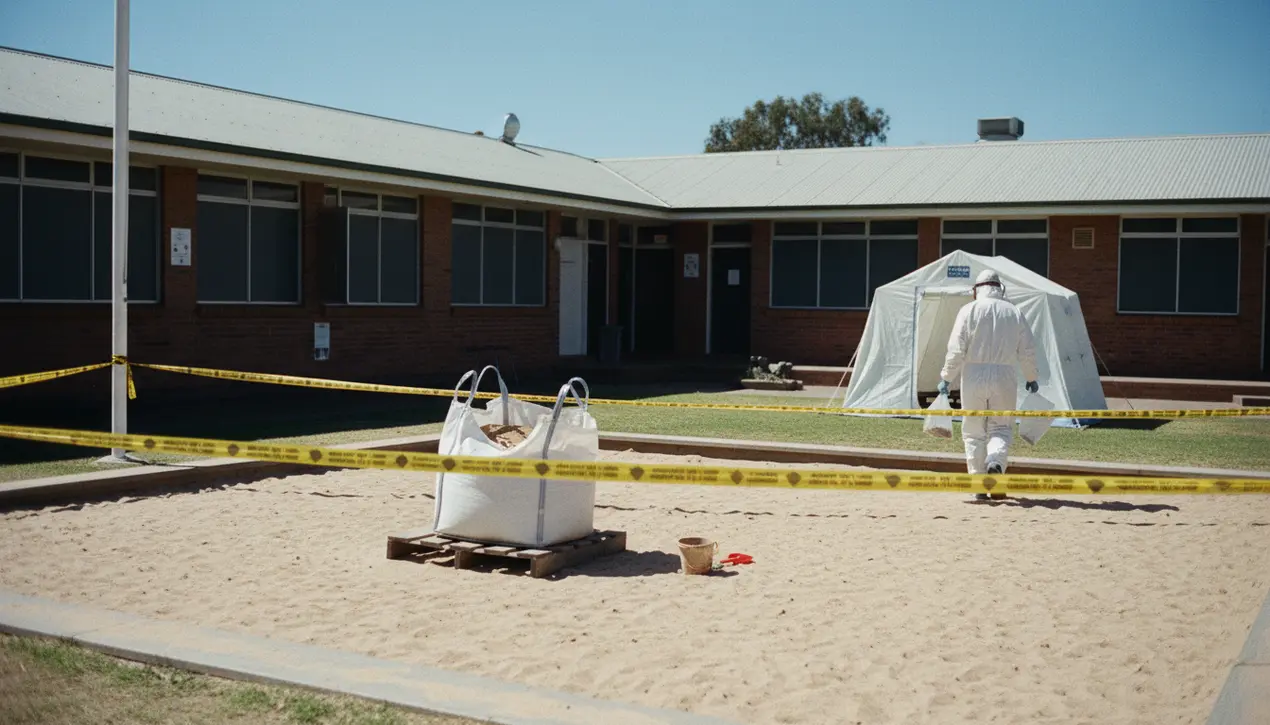
Otheraccidents & disastersEnvironmental Disasters
Australian Schools Close Due to Asbestos in Play Sand.
RA
Rachel Adams
2 hours ago7 min read4 comments
In a move that has sent a ripple of unease through communities from Sydney to Perth, Australian regulators have been forced to issue a recall for several brands of play sand, a staple of schoolyards and backyard play areas, after confirming the presence of asbestos fibres. While the immediate official line, echoed by health authorities, downplays the risk as 'low,' this incident cuts to the core of a fundamental societal trust—the safety of the environments where our children learn and grow.The very substance meant to cradle their falls and fuel their imaginations has been revealed as a potential vector for a known carcinogen, a grim echo of past public health failures. Asbestos, a term that conjures images of industrial decay and protracted legal battles, is a mineral fibre with a long and dark history of causing debilitating lung diseases, including mesothelioma, which can manifest decades after initial exposure.The discovery in play sand, a product sourced from crushed rock, points to a critical breakdown in the supply chain's integrity, raising urgent questions about the oversight of material sourcing and the adequacy of pre-market safety screenings. Experts in environmental toxicology are cautiously weighing in, noting that the risk is indeed dose-dependent and that a single exposure is unlikely to cause harm, but this scientific nuance offers little comfort to parents whose children may have been repeatedly exposed.The psychological impact, the chilling thought of invisible fibres clinging to tiny hands and clothes, is a potent toxin in itself. This is not merely a product recall; it is an ecological and public health alarm bell.It forces us to confront the legacy of our industrial past and the vulnerabilities in our modern consumer landscape. What other seemingly innocuous materials in our children's daily lives harbor hidden threats? The closure of schools for remediation is a necessary but drastic step, disrupting education and sowing anxiety, a stark reminder that the cost of regulatory failure is measured not just in dollars, but in the disruption of childhood and the erosion of public confidence. The broader conversation must now turn to stricter material traceability, more rigorous independent testing protocols, and a renewed commitment to a precautionary principle that prioritizes the long-term health of our youngest citizens over commercial expediency.
#featured
#asbestos
#product recall
#children's safety
#schools
#health risk
#Australia
#sand contamination
Stay Informed. Act Smarter.
Get weekly highlights, major headlines, and expert insights — then put your knowledge to work in our live prediction markets.
Comments
Loading comments...
© 2025 Outpoll Service LTD. All rights reserved.